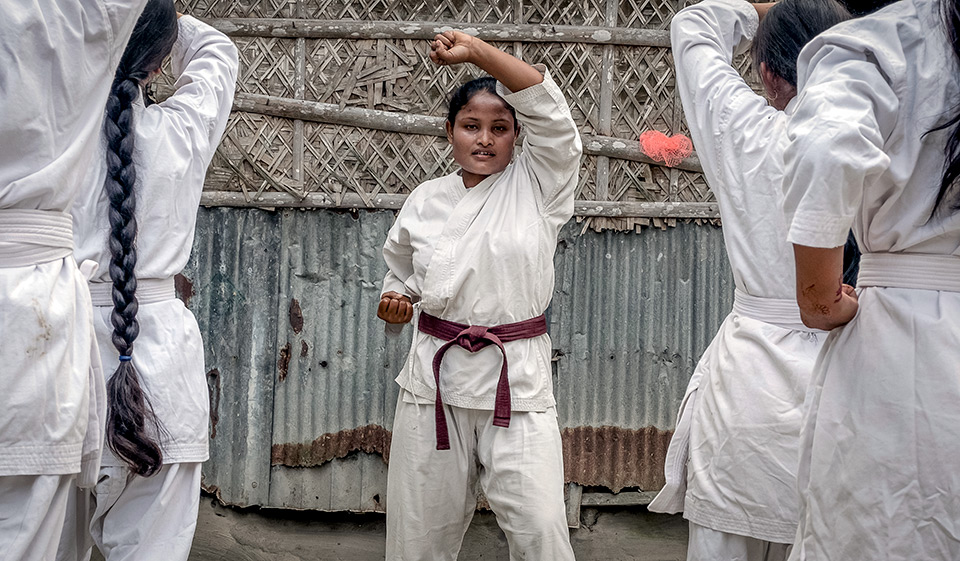I am Generation Equality: Gaiotree Roy, karate and self-defense trainer
Date:
Author: Wahida Zaman Shithi


Three things you can do to become part of Generation Equality:
- Promote self-defense training for girls, especially those from marginalised communities
- Prevent early and forced marriage
- Raise awareness about gender-based violence
I am generation equality because…
“I don’t want to see girls at risk of early and forced marriage.
I was only 12 years old when I lost my father, the only breadwinner in my family. I had to work to make a living for myself and my younger siblings as our mother left us and married someone else. My uncles wanted to marry me off. But I resisted my own child marriage. Since then, I have been working in my community to prevent child marriage and raise awareness on self-defense training for girls.
I received a karate training with the support of Plan International Bangladesh and earned the first three belts. This training boosted my confidence and I started feeling the urge to work with girls like me in my community. I believe if girls know self-defense techniques, they can reduce the risk of being exposed to gender-based violence.
“Self-defense not only enables girls to protect themselves from gender-based violence, but also gives them the confidence to fight for their rights.”
I provide karate training to adolescent girls in my community. I am just one step away from earning a black belt and becoming a master. I aspire to open my own karate school and pursue self-defense training as my profession. But my journey is not an easy one. People in the community are not always supportive of a girl who is unmarried and teaches karate.
I speak up against child marriage in my community. Whenever there is any incident of child marriage, I interfere, try to convince the parents and communicate with local authorities when necessary. With support from like-minded people in the community, I have stopped 34 cases of early and forced marriage.
Self-defense knowledge is essential
People in Bangladesh, especially in rural areas, don’t consider learning self-defense as an essential skill for girls. Boys regularly harass girls in public places. Challenges like this put girls at risk of dropping out of school and early marriage. Self-defense not only enables girls to protect themselves from gender-based violence, but also gives them the confidence to fight for their rights. Girls love the idea, but parents are reluctant to pay for the training.
Due to deep-rooted patriarchal traditions and norms, gender-based violence persists in Bangladesh and girls and women face violation of their human rights regularly. Many activists strive for ending gender-based violence. Men have an important role to play in bringing solutions. Men who are experts in self-defense techniques can support girls with training.
Community intervention can go a long way towards challenging gender-based violence issues. We should all work together to ensure equality and to eliminate gender-based violence. We must all respect and protect girls’ rights as human rights.
Gaiotree Roy lives in Joldhaka, Rangpur in northern Bangladesh. She is currently studying Master of Arts in Philosophy. She is a karate trainer and steps away from achieving a black belt, the last stage of mastery in karate. She actively contributes to preventing gender-based violence and child marriage in her community.